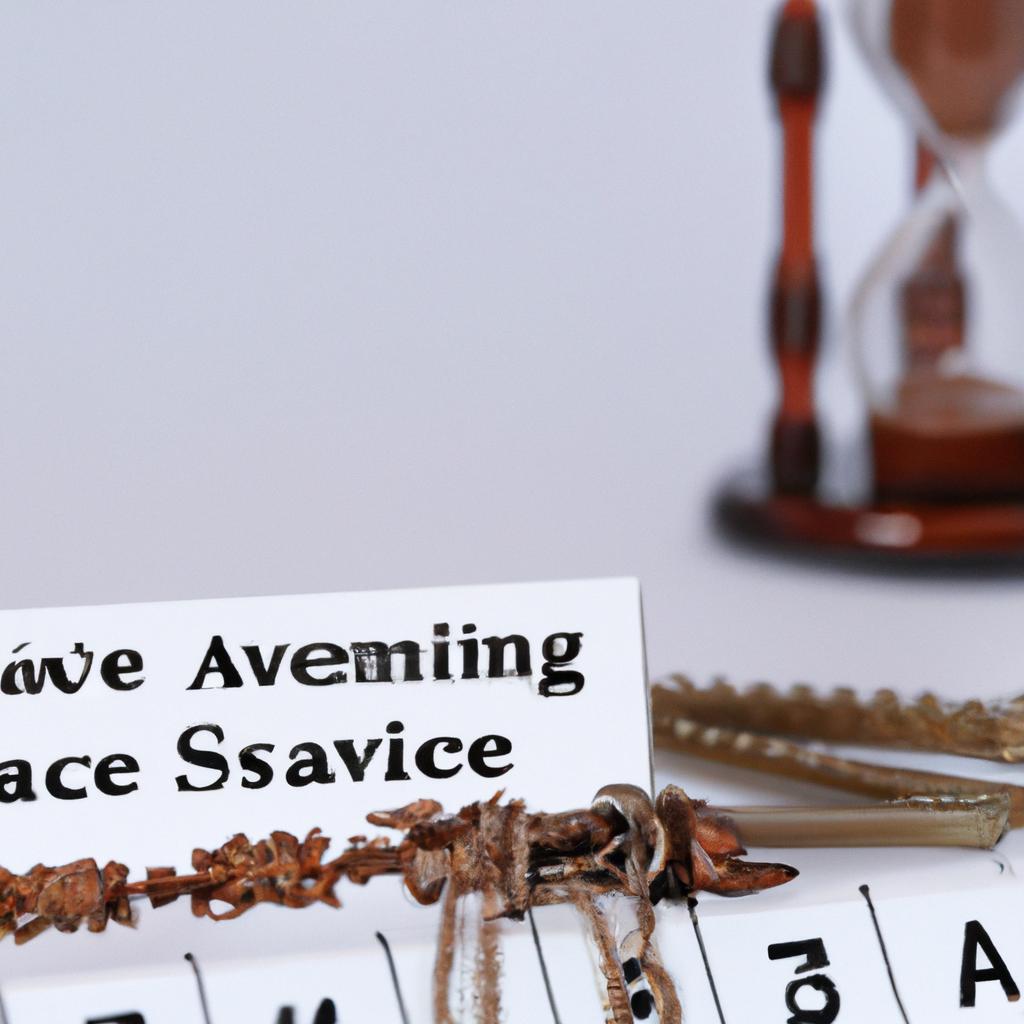As experienced legal professionals at Morgan Legal Group in New York City, we understand the complexities and challenges that come with managing and distributing an estate. One commonly overlooked aspect of estate administration is holding an estate sale. In this article, we will provide you with a comprehensive guide on how to effectively plan and execute an estate sale to maximize value and streamline the distribution process. Let us navigate you through this intricate legal terrain with precision and expertise.
Setting a Timeline and Planning in Advance for a Successful Estate Sale
When preparing for an estate sale, it is crucial to establish a clear timeline to ensure a smooth and successful process. Planning in advance will help you stay organized and on track with all the necessary steps. Here are some key points to consider:
- Inventory: Start by taking inventory of all the items you plan to sell. Categorize them by type and value to determine pricing and marketing strategies.
- Research: Research the current market trends and prices for similar items to set competitive prices that will attract buyers.
- Advertising: Create a marketing plan to promote your estate sale through online platforms, social media, and local newspapers to reach a wider audience.
By setting a timeline and planning in advance, you can maximize the success of your estate sale and ensure a seamless process for both you and potential buyers. Remember to enlist the help of professionals like Morgan Legal Group in New York City for expert guidance on estate planning and legal matters.

Organizing and Displaying Items for Optimal Presentation and Pricing
To ensure a successful estate sale, it is crucial to carefully organize and display items for optimal presentation and pricing. Start by categorizing items into groups such as furniture, artwork, jewelry, collectibles, and household items. Utilize tables and shelving units to showcase smaller items while positioning larger pieces strategically throughout the sale space. Consider creating themed displays to attract buyers and highlight unique items.
When pricing items, conduct thorough research to determine their market value. Use price tags or labels to clearly mark each item, and consider offering discounts for bulk purchases or on the final day of the sale. Keep a pricing guide handy to help you quickly and accurately price items as customers inquire. Be prepared to negotiate with buyers, but stand firm on prices for high-value items. Overall, presenting items in an organized and visually appealing manner will attract more buyers and increase the likelihood of a successful estate sale.
| Jewelry | Original Prices | Discounted Prices |
| Necklace | $500 | $400 |
| Earrings | $300 | $250 |
| Bracelet | $200 | $150 |

Navigating Legal Considerations and Potential Challenges During the Estate Sale Process
When embarking on the estate sale process, it is crucial to navigate the legal considerations and potential challenges that may arise. One key aspect to address is ensuring that all necessary legal documents are in place, such as a valid will or trust. This will help to clarify the wishes of the deceased and avoid any disputes among beneficiaries. Additionally, it is important to be aware of any local regulations or laws that may impact the estate sale, such as restrictions on certain items or procedures for handling the sale.
Another important consideration during the estate sale process is to carefully assess and value the assets being sold. This includes conducting a thorough inventory of all items, determining their market value, and documenting any appraisals or assessments. It is also important to be transparent and communicative with potential buyers about the condition and history of the items for sale. By taking these steps, you can help ensure a smooth and legally compliant estate sale process.

Maximizing Exposure Through Strategic Marketing and Advertising Efforts
To host a successful estate sale, it is crucial to carefully plan and strategize every aspect of the event. Utilizing strategic marketing and advertising efforts can greatly maximize exposure and attract more potential buyers. One effective way to promote the estate sale is through targeted online advertisements on social media platforms and local classified websites. By creating eye-catching graphics and informative posts, you can generate buzz and excitement around the event. Additionally, consider reaching out to local newspapers and community bulletin boards to spread the word to a wider audience.
Another key element in maximizing exposure is leveraging email marketing campaigns to reach out to your existing customer base and potential buyers. Send out personalized emails with details about the estate sale, including dates, times, and featured items. Create a sense of urgency by highlighting limited-time offers or special discounts for early birds. Moreover, consider partnering with local estate sale companies or antique dealers to cross-promote the event and attract a broader range of customers. By combining strategic marketing and advertising efforts, you can ensure a successful and profitable estate sale that meets all your objectives.
Q&A
Q: What is an estate sale?
A: An estate sale is a way of liquidating the belongings of a home or estate through a public sale.
Q: Why would someone hold an estate sale?
A: Estate sales are often held when a homeowner is downsizing, moving, or has passed away. It is a way to clear out items quickly and efficiently.
Q: How can I prepare for an estate sale?
A: Start by sorting through items to determine what will be sold, pricing items accordingly, and advertising the sale to attract buyers.
Q: What is the best way to advertise an estate sale?
A: Utilize online platforms such as social media, estate sale websites, and local classifieds to get the word out about your sale.
Q: What are some tips for a successful estate sale?
A: Make sure to have plenty of signage directing people to the sale, price items competitively, and be prepared to negotiate with buyers.
Q: How can I ensure a smooth sale day?
A: Have plenty of help on hand to manage the crowds, keep items organized, and be prepared to handle transactions efficiently.
Insights and Conclusions
In conclusion, holding an estate sale can be a daunting task, but with proper planning and organization, it can also be a rewarding and cathartic experience. Remember to start early, advertise effectively, price items appropriately, and be prepared for the unexpected. By following these tips, you can successfully clear out a loved one’s belongings while also finding new homes for cherished items. So gather your courage, roll up your sleeves, and get ready to host a successful estate sale that honors the past and paves the way for the future. Happy selling!
 Are you looking to downsize your home or liquidate the belongings of a loved one? An estate sale could be the perfect solution. Holding an estate sale can be a daunting and overwhelming task, but with the right guidance and knowledge, it can also be a successful and rewarding experience. In this article, we will walk you through the steps of how to hold an estate sale, from preparation to execution. So, grab a cup of coffee and let’s get started!
Are you looking to downsize your home or liquidate the belongings of a loved one? An estate sale could be the perfect solution. Holding an estate sale can be a daunting and overwhelming task, but with the right guidance and knowledge, it can also be a successful and rewarding experience. In this article, we will walk you through the steps of how to hold an estate sale, from preparation to execution. So, grab a cup of coffee and let’s get started!
Benefits of an Estate Sale
Before we dive into the step-by-step process of holding an estate sale, let’s first understand the benefits it can offer. An estate sale is a great way to clear out a large number of items in a short period of time. It is also an efficient way to sell valuable items and make a profit. Additionally, an estate sale can save you time and effort by not having to list each item individually online or hold a garage sale. It also provides a one-stop-shop for buyers to come and purchase multiple items at once. Overall, an estate sale can provide a simple and effective solution for decluttering and making some extra cash.
Step 1: Prepare for the Estate Sale
Preparation is key when it comes to holding an estate sale. It’s crucial to give yourself plenty of time to plan and organize everything properly. Here are some essential steps to prepare for your estate sale:
- Determine the date and time for the sale: Pick a weekend or a holiday when most people are likely to have free time to attend the sale. Reach out to your community and check for any events or festivals happening around the same time. This could attract a larger crowd to your sale.
- Obtain necessary permits and licenses: Depending on your state’s laws and regulations, you may need to obtain permits or licenses to hold an estate sale. Make sure to do your research and comply with any requirements.
- Declutter and sort through items: Go through the items in the house and categorize them into groups such as furniture, household items, collectibles, and clothing. Start decluttering by selling or donating any unwanted items, so you have a smaller inventory to handle during the sale.
- Research prices: Take the time to research the value of your items to ensure you are setting fair prices for both you and the buyers. You can check online marketplaces, consult with an appraiser, or visit similar estate sales to get an idea of the prices.
- Advertise the sale: Use various platforms to advertise your estate sale, such as social media, local newspapers, and online classifieds. Include high-quality photos and a detailed list of items to attract potential buyers.
Step 2: Prepare the Items for Sale
After getting the necessary permits and sorting through the items, the next step is to get everything ready for the sale. Here are some tips to ensure your items are organized and presented nicely for potential buyers:
- Clean and repair items: Before displaying the items for sale, make sure to clean them thoroughly and repair any damages. This will make them more appealing and increase their value.
- Display items effectively: Organize items in a way that makes it easy for buyers to browse. Use tables, shelves, and racks to display clothes, accessories, and small items. Place larger items, such as furniture and appliances, in a prominent area to grab buyers’ attention.
- Theme or set up a room: If your estate sale involves a large inventory, consider setting up different rooms or areas with a specific theme to make the shopping experience more enjoyable for buyers. For example, a room dedicated to books or a kitchen set up with cookware and appliances.
- Label and price items: Make sure to have clear and visible price tags on all items. You can use a color-coding system or use stickers to avoid any confusion. This will also help you keep track of the items and prices during the sale.
Step 3: Organize Payments and Logistics
As the estate sale date approaches, it’s essential to have a plan in place for handling payments and logistics. Here are some tips to follow:
- Have a plan for items that don’t sell: Despite your efforts, some items may not sell at the estate sale. Have a backup plan for how you will dispose of these items, such as donating them to charity or selling them online.
- Prepare for payment options: Make it easy for buyers to pay by having different payment options available, such as cash, cards, and checks. Be prepared to handle any potential haggling over prices.
- Determine logistics: Consider hiring additional help to handle the sale, especially if it’s a large estate sale. Arrange for proper parking options for buyers and have clear signs or directions to guide them.
- Be mindful of safety: Ensure that the area is well-lit and safe for both you and the buyers. Have someone supervise the sale at all times and secure any valuable items.
Step 4: Execute the Estate Sale
The day of the estate sale has arrived, and it’s time to make the most of it. Here are some tips for a successful sale:
- Be friendly and welcoming: Greet buyers with a warm and friendly attitude. This will make them feel more comfortable and encourage them to make purchases.
- Negotiate prices: Be open to negotiating prices, especially towards the end of the sale. Offer bundle deals, discounts, or free items to entice buyers to make a purchase.
- Keep track of items and prices: Assign someone to handle the cash register and keep track of all transactions. This will help avoid any mistakes or discrepancies in prices.
- Stay organized: As the sale progresses, items may become scattered or disorganized. Make sure to keep everything tidy and well-stocked throughout the day.
In Conclusion
Holding an estate sale can be a daunting task, but with proper planning and organization, it can also be a successful and profitable experience. Make sure to give yourself enough time to prepare, advertise, and execute the sale. Also, be aware of any legal requirements and safety measures to ensure a smooth and hassle-free event. By following these steps, you’ll be well on your way to holding a successful and rewarding estate sale. Happy selling!

